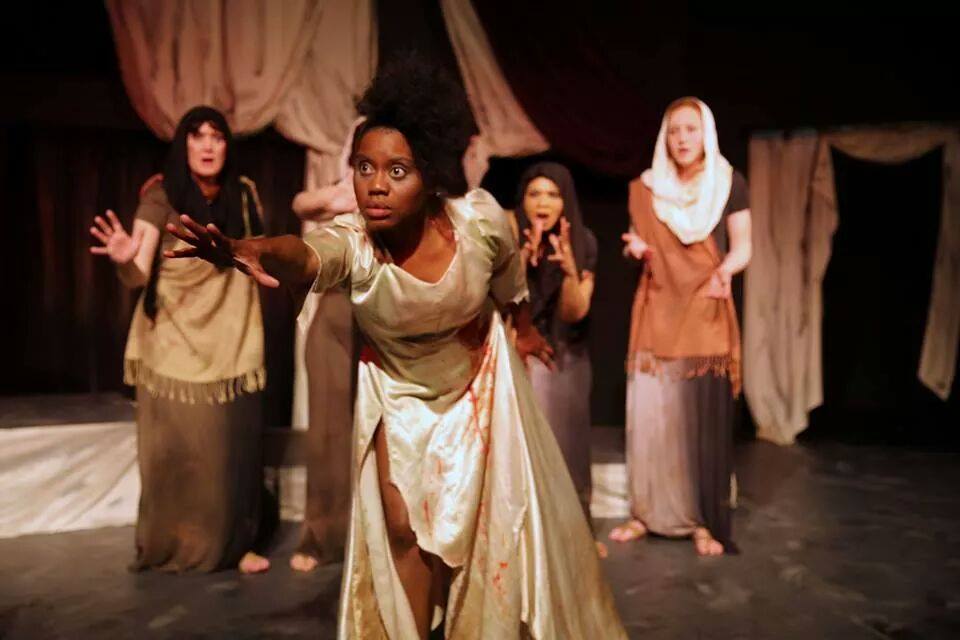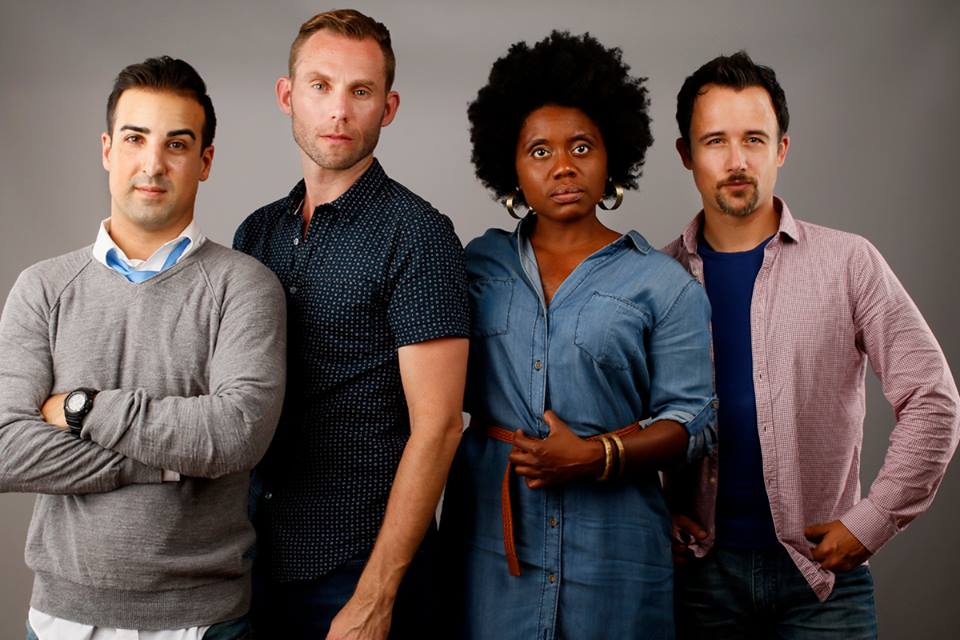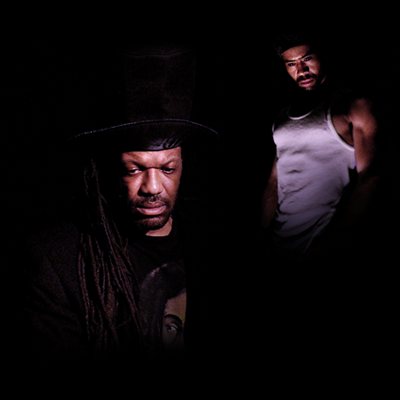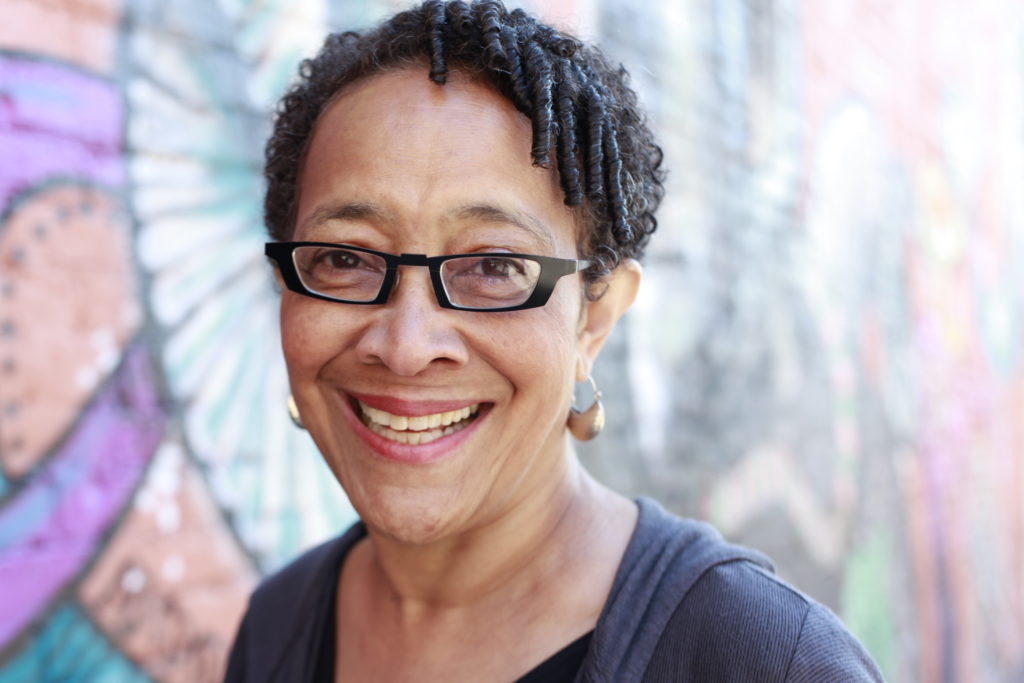Ujima Theatre Company uses theatre to foster self-determined communities
The work of Springboard for the Arts is rooted in arts-based economic and community development. We believe artists are critical assets in that work, and support them by offering a variety of resources that enable them to make both a living and a life. This is why Springboard is a member of the New Economy Coalition (NEC): because we believe in the vision of a new economy, one that is just, sustainable, and democratic; one that is ethical and community-rooted; and one that does not rely on the exploitation of disenfranchised communities in order to thrive. This is the fourth in a series of stories highlighting the work of other arts-based NEC member organizations and affiliated organizations that have developed ways to sustain themselves while also sustaining artists, demonstrating that, yes, a new economy is possible. Read the rest of the series here.
Lorna Hill founded Ujima Theatre Company in Buffalo, New York on December 15, 1978. She had been working as the assistant to the chair of the Theatre Department at the University of Buffalo and decided she wanted to start a theatre collective. The concepts of collectives and co-ops were popular at the time, but she was told that a collective such as the one she envisioned wouldn’t work – that Black people would never work together like that.

She’s been proving the people who told her that wrong ever since. Hill pulled together 28 people her age and younger who were doing theatre work. She asked them, “How would you like to seize the means of theatre production rather than wait for the white dominant culture to hire you?” These 28 people were racially diverse and modeled their collective after their concept of the ideal family: they made agreements regarding how to interact with each other, they wanted to be able to raise children inside the organization, and they wanted to control aspects of their theatre work such as how and when they would go onstage. This has been the focus on Ujima for 36 years, and Hill says it has functioned very well.
“Ujima” is a Swahili word that means “communalism,” referring to the sense of collective work and responsibility that the collective sought. Often referred to as a “Black theatre company,” Hill clarifies that Ujima is not always for and by Black people and it is not exclusively Black theatre – they incubated the first lesbian theatre company and the first Latino theatre company in Buffalo, because these were groups that had nowhere else to go. Members are also not exclusively Black or even exclusively people of color; there are white members too.

“Our collective work was meant to be the work we do within the state that our community represents. It was larger than Buffalo or even us,” Hill explains. “However we were defined, we wanted to include anyone else who wanted to seize the means for production. We’re trying to represent the community we serve and the community that serves us.”
Traditionally Ujima does theatre they consider to be responsible; they don’t do “fluff.” The plays they perform lift up the history of the African in America, and they also perform classics from the African American and European American cannons – “plays that speak to disadvantage no matter where they come from,” as Hill describes.
“Our end goal is to use theater to build and perpetuate a beloved community. That’s a worthy goal of any institution,” says Hill. “We only do work that lifts up the idea of a situation that is significant and explores how it happened, who is responsible, and whether it is a happy or tragic ending it gives you some idea of how you can participate in a solution.”
Free Fred Brown! is devised theatre piece first commissioned in 1983 about a young Black man from a frontline Rust Belt community who reluctantly becomes the face of a movement while in prison for “theft of services” from the local gas company. Addressing themes of climate injustice, racial injustice, and economic injustice, Hill says that Free Fred Brown! is “the most significant piece we’ve ever done.”
Ujima revived the play in 2017 with a new script to reflect today’s social issues and address the community in a different way. The ensemble show has all of the cast members onstage at all times and culminates with the “grand opening” of the Growing Justice Community Center, when the audience is then invited onstage and it becomes a party with everyone doing the Wobble.
“It speaks very directly to the frontline community. What do we do on the frontline when we celebrate? We do the Wobble. We get everybody on the floor and it’s fun and it’s funny.”
The play takes place in a fictional city called Uptown, which looks a lot like Buffalo. The residents of Uptown are living at the intersection of climate, racial, and economic injustice – a frontline community – and are the most vulnerable residents in the city. This community finds itself in a struggle with the National Gas Company and it only gets worse as the company grows larger, merges with other companies, and raises its rates. Fred Brown is arrested at the beginning of the play for stealing services and becomes the face of the community’s fight for justice.
“This is reflective of something that actually happened in this community and it’s based on a real incident,” Hill explains.
Free Fred Brown! was originally created over a year with the diverse group of collective members meeting every Saturday and bringing their own experiences into its creation, ultimately reflecting the diversity of the community’s experiences. Ujima also holds a talk back after every show, and most of the audience stays for it because they saw something familiar to their own lives onstage.
“We wanted the concept of just transition to be easy to see and understand. We never use that term in the play; we wanted it to be accessible and wanted people to feel that intersection for themselves and clearly see how that intersection has happened in their lives. People know we’re on the frontline, but they’re not clear how we got there. I have to believe the beloved community is not ignorant; it is untutored. It can learn and people can change their minds.”

Ujima is currently preparing to move to its new home inside PUSH Buffalo’s renovation of the long-vacant Public School 77, which will include a senior citizen residence, Ujima Theatre Co., and Peace of the City, a nonprofit organization that works with youth through restorative justice and trauma-informed care programs. Hill would like to reopen Free Fred Brown! to introduce Ujima to this new neighborhood, and is also planning a prequel. She also plans to reopen Ujima’s youth theatre training program that includes all theatrical disciplines – acting, dancing, singing, and production – and also focuses on the specifics of African American performance technique. Once that is running, she wants the first production to be a play on the Birmingham Children’s Crusade of 1963.
Ujima’s work within the community goes far beyond theatre production. As an organization dedicated to social justice, the collective works in collaboration with a number of different organizations on various projects, including work with youth in art school and youth in the foster care system, as well as getting involved with other frontline organizations like the New Economy Coalition to promote and push forward self-determined, just, equitable communities.
“We come from a community with a long history of being self-determining as individuals, but now we need to be self-determining as a community,” Hill explains. “There was once more than 150 all-Black towns in this nation, though most of those towns were destroyed. We have a history of self-determination as a community, and I look at the NEC and the new economy as an opportunity to go back to that self-determination. What do we need as a community? We’ll decide and we’ll let you know.”
Self-determination as a community determines everything that goes into a community: who does business there, who does it benefit, what is being taught in the schools. That self-determination also spills over into policy issues that affect the community: when there are conversations about redistricting or the cost of utilities, community members will show up to the public meetings in numbers that cannot be denied.

“In the time I’ve been alive, everything that is of critical, vital concern to my community has been labeled ‘political,’ so you get relegated to this category that no one wants to live under,” says Hill. “To me a new economy means we’ll stop doing that. We’ll stop referring to what we do as ‘political;’ it’s vital. A new economy means fighting for a living wage, and having a strong awareness of economic realities and how we can impact them. A new economy also means that, under that umbrella of community self-determination, we get to decide what our economic priorities are.”
Ujima’s decades-long success has come from great sacrifice and fierce commitment from all of its members. They washed dishes, cleaned floors, did the lighting and the costuming for productions, and paid dues to do all of it. Hill herself still works 10 hours and day, seven days a week, because that’s simply what it takes.
“We have a lot to do and very little money with which to do it,” says Hill. “If you look at the fact that the African has even survived in America – HOW? They didn’t survive because of money but because they had a sheer will to survive and no sacrifice was too great. We survive because we refuse to quit. We spent years of working just putting all the money back into the institution and presenting product as needed. We survive by great personal sacrifice.”
The challenge for frontline institutions such as Ujima, Hill says, is that they aren’t necessarily recognized for the kind of work that they do. The “genius” of frontline institution management doesn’t typically get rewarded with something like the genius grant, which awards individuals.

“We are people who can literally squeeze a dollar until the eagle screams,” she says. “If someone could come up with a different approach to the genius grant, that would help many individuals to survive. It is absolutely imperative that frontline arts and cultural institutions survive. The service they provide is inestimable and essential. But there is a reason they survive but don’t thrive; they are often underfunded and overlooked.”
Ujima is currently working with the Crossroads Collective in Buffalo on a new collaborative called Frontline Arts Preservation, which consists of Buffalo’s four remaining legacy frontline arts institutions as well as videographers, researchers, academics, artists, and policy makers from the community to address the legacy and benefit of the work of frontline arts and cultural institutions. Interviews will be conducted with the founders of frontline organizations past and present and forums will also be held at these institutions to discuss the kind of infrastructure they need and what policy solutions there might be. All of this will be recorded and later turned into documentary shorts that will then be used in conjunction with a research report on the resource flows in the ecosystem of frontline arts organizations in a final forum held for the broader community of stakeholders.
“We want to practice a different kind of advocacy where frontline institutions are concerned and build a power base within the community that allows us to confront these issues,” says Hill. “We have to build a base under us so we can move this thing forward.”
